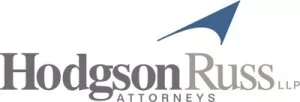First published by the Canadian Tax Foundation in 2004 Vol. 12, no. 3 Canadian Tax Highlights.
The US Treasury recently proposed changes to Circular 230, which incorporates regulations that govern practice before the IRS. These changes prescribe best practices for all tax advisers, combine and modify standards for marketed and "more likely than not" tax shelter opinions, revise procedures for ensuring compliance with standards of practice, and provide for advisory committees to the Office of Professional Responsibility. The proposals hope to restore, promote, and maintain the public’s confidence in the honesty and integrity of professionals who provide tax advice.
Best practices must be observed by all tax advisers for oral and written advice: (1) communicate clearly with the client regarding the terms of the engagement and the form and scope of the advice or assistance to be rendered, (2) establish the relevant facts and evaluate the reasonableness of any assumptions or representations; (3) relate the applicable law, including potentially applicable judicial doctrines, to the relevant facts; (4) arrive at a conclusion supported by the law and the facts; (5) advise the client regarding the significance of the conclusions reached; (6) act fairly and with integrity in practice before the IRS. All tax advisers must follow best practices and comply with certain tax shelter opinion requirements; managing tax partners must also ensure that procedures are in place to enable advisers to do so. Devising adequate procedures to comply with the regs will require creativity to balance the clients’ needs for timely responses.
Key definitions are modified for tax shelter opinions. A "tax shelter" includes any partnership or other entity or any investment plan, other plan, or arrangement with a significant purpose of avoidance or evasion of any tax imposed by the Code. Tax avoidance generally refers to a strategy to minimize tax and includes an essentially unlimited range of personal, financial, and business transactions. A "tax shelter opinion" is written advice by a practitioner concerning federal tax aspects of any federal tax issue related to a tax shelter item or items (for example, income, gain, loss, deduction, or credit; the existence or absence of a taxable transfer of property; and the value of property), including a financial forecast or projection, predicated on assumptions regarding federal tax aspects of the investment or tax risks portion of offering materials.
Current exclusions for municipal bonds, annuities, family trusts, individual retirement accounts, stock option plans, and certain other specific transactions are eliminated. Written advice may range from a short e-mail response to a client inquiry to an extensive formal opinion letter, challenging managing tax partners to develop practical compliance procedures. A practitioner must determine whether an opinion is a tax shelter opinion, for which there are additional compliance requirements.
A "more likely than not" tax shelter opinion reaches a conclusion at a confidence level greater than 50 percent that one or more federal tax issues will be resolved in the taxpayer’s favour. A "marketed tax shelter opinion" exists if a practitioner knows or has reason to know that it will be used by others in promoting or recommending the tax shelter to one or more taxpayers. If either type of opinion exists, the adviser must, inter alia, identify and consider all relevant facts and must not rely on any unreasonable factual assumptions or representations; relate the applicable law to the relevant facts and not rely on any unreasonable legal assumptions, representations, or conclusions; reach a conclusion, supported by the facts and the law, with respect to each material federal tax issue; and provide an overall conclusion about the federal tax treatment of the tax shelter item or items and the reasons therefor. If a practitioner cannot reach a conclusion or an overall conclusion, the opinion must state the issues and reasons for failure to reach a conclusion and make certain disclosures; limited-scope opinions are allowed only for non-marketed opinions.
A practitioner must disclose any compensation arrangement or any referral agreement with any person (other than the client) with respect to promoting, marketing, or recommending a tax shelter. A marketed opinion must disclose that it may not be sufficient for a taxpayer to use for the purpose of avoiding penalties and that the taxpayer should seek advice from his or her own tax adviser. A limited-scope opinion must state that additional issues may exist that may affect the federal tax treatment of the tax shelter under discussion. If an opinion fails to reach the confidence level of at least "more likely than not" with respect to one or more material federal tax issues, it must disclose that fact and that it was not written, and cannot be used by the recipient, for the purpose of avoiding penalties with respect to such issues. One objective of the proposed regulations is to ensure that a client is informed explicitly about what protection an opinion provides to him or her.
Alice A. Joseffer is a partner in Hodgson Russ LLP’s General/International Tax Practice Group and regularly counsels clients on tax issues, including mergers and acquisitions, recapitalizations, executive compensation arrangements, and personal income and estate planning.
The content of this article is intended to provide a general guide to the subject matter. Specialist advice should be sought about your specific circumstances.

